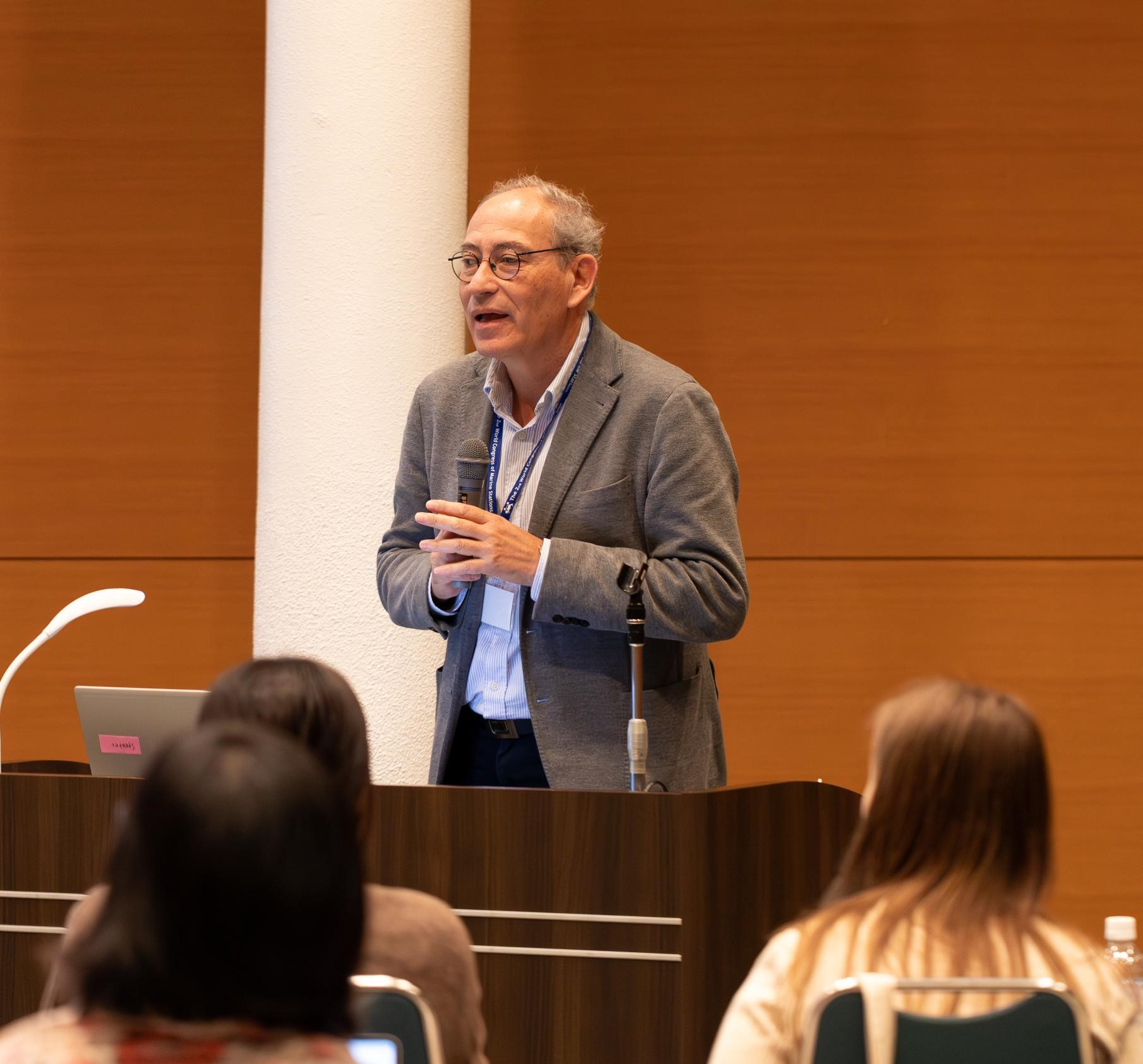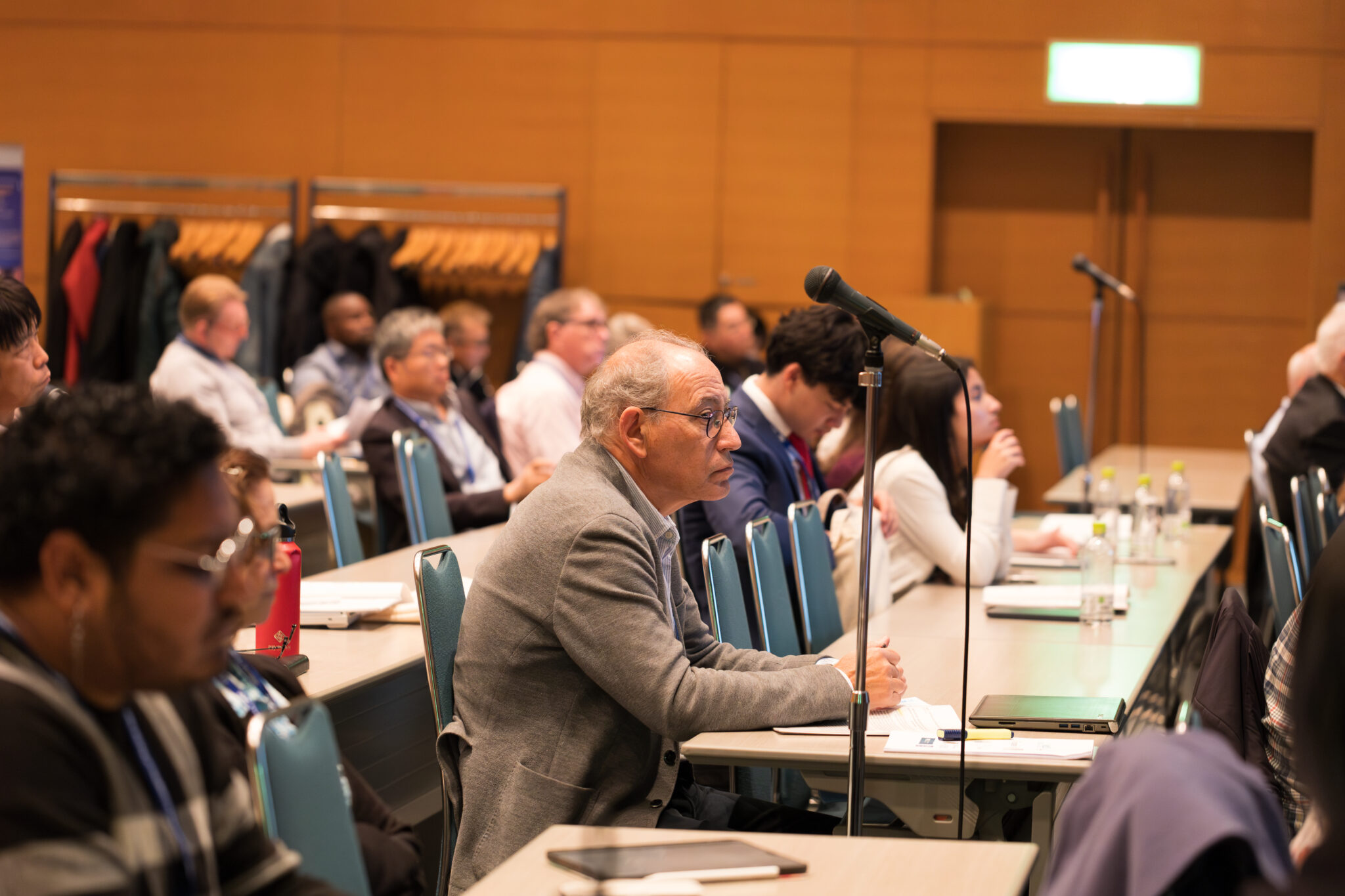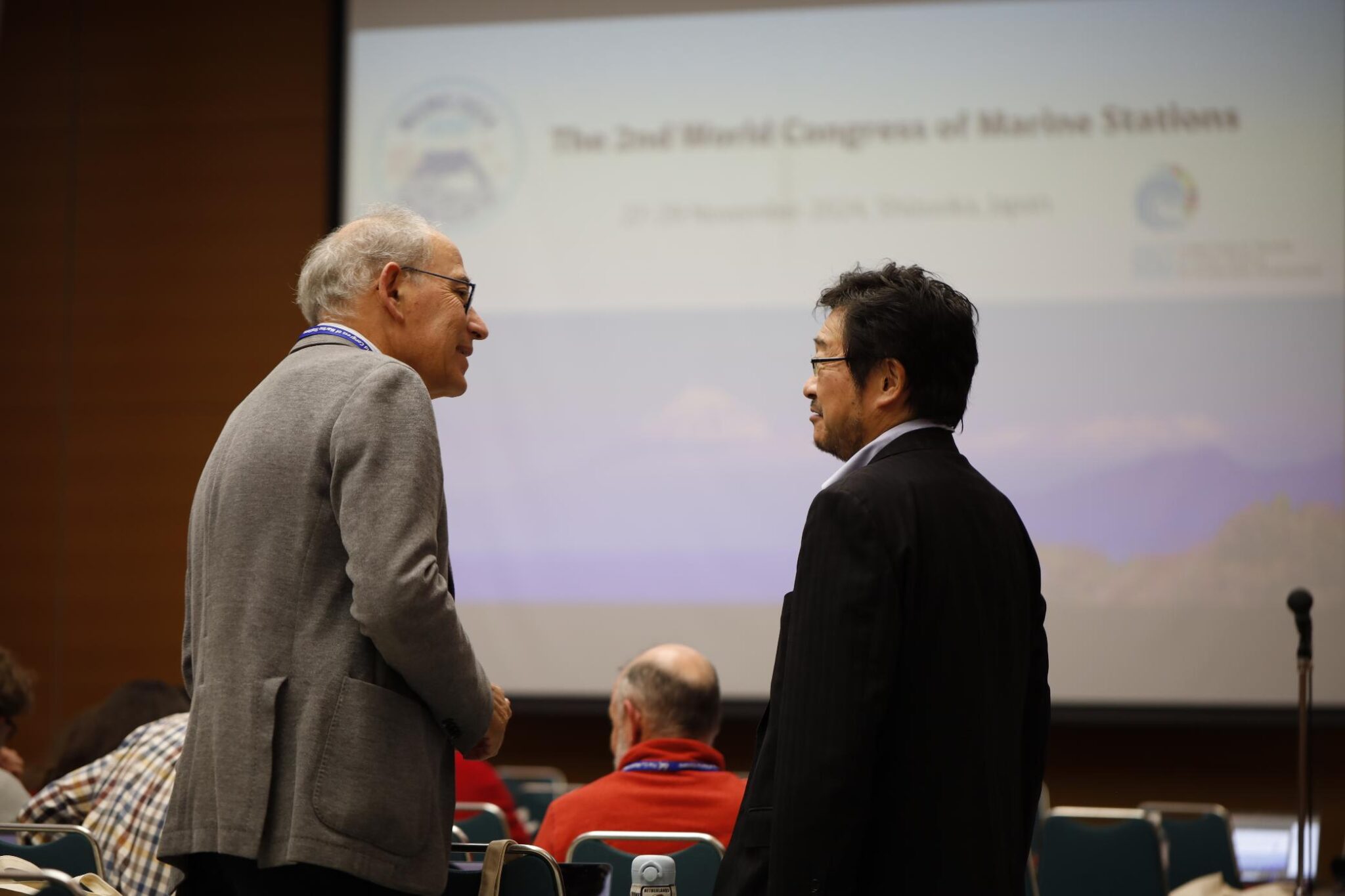IHCantabria’s Director of Education and Capacity Building, Jose A. Juanes, participates in the 2nd World Congress of Marine Stations

José A. Juanes, director of Education and Capacity Building of IHCantabria, during his intervention at the 2nd World Marine Stations Congress, held in Shizuoka, Japan
Promoting interdisciplinary collaboration and highlighting their ability to address global challenges, such as climate change and marine biodiversity conservation, are some of the objectives of this conference
The director of Education and Capacity Building of the Environmental Hydraulics Institute of the Universidad de Cantabria (IHCantabria), José A. Juanes, is participating in the 2nd World Congress of Marine Stations, which is being held from November 27 to 29 in Shizuoka, Japan.
The objectives of this congress include consolidating the network of marine stations worldwide, promoting interdisciplinary collaboration and highlighting their unique ability to address global challenges such as climate change and marine biodiversity conservation.
In Session 2, entitled “Marine stations and global research capacity”, José A. Juanes presented yesterday his paper on “IHCantabria: Multidisciplinary approaches to the study of coastal socioecological systems”, in which he highlighted the multidisciplinary approach that characterizes research on marine ecosystems at this institute.
The 2nd World Congress of Marine Stations is organized by the World Association of Marine Stations (WAMS) and has been recognized as a key activity within UNESCO’s Decade of Ocean Sciences for Sustainable Development. This event brings together experts, with the aim of strengthening global scientific collaboration on marine stations and research capacity around the topic.
The second edition of this congress, being held this week in Shizuoka, continues the momentum started in 2021, when the WAMS steering committee was established and the declaration was signed that underlined the importance of marine stations, as key platforms to address global scientific and environmental challenges.
Session 2, in which José A. Juanes participated yesterday , was moderated by Anna Gebruk, professor at the University of Edinburgh, UK. This session addressed topics such as international marine research networks, biodiversity monitoring and the challenges faced by marine stations in a global context of scientific cooperation.
Speakers at Session 2 included leading experts from international institutions such as Hokkaido University (Japan), Okinawa Institute of Science and Technology (Japan), Newcastle University (UK) and IHCantabria, University of Cantabria (Spain).
This international congress ends today, November 29, with the adoption of the “WAMS Declaration”, which reaffirms the need for global cooperation to face ocean challenges at a time of political instability and environmental crisis.
Contribution from the World Association of Marine Stations
The goal of the World Association of Marine Stations (WAMS) is to foster international collaboration between marine stations and scientific personnel, promoting further research, education and long-term observations on the subject. This global network also provides the scientific community with a common voice on marine research and policy issues, in addition to supporting global goals for the ocean and providing a stronger voice to advocate for the role of marine stations worldwide.
More information on the program of the 2nd World Congress of Marine Stations, through this link.

The 2nd World Congress of Marine Stations, brought together hundreds of marine professionals from around the world in Shizuoka, Japan, to share knowledge, strengthen networks and foster collaboration to expand the capacity and impact of marine stations

This event promoted networking opportunities. In the photo, José A. Juanes, director of Education and Capacity Building of IHCantabria, talks with the president of the 2nd World Congress of Marine Stations, Kazuo Inaba, professor at the Shimoda Marine Research Center of the University of Tsukuba, Japan



